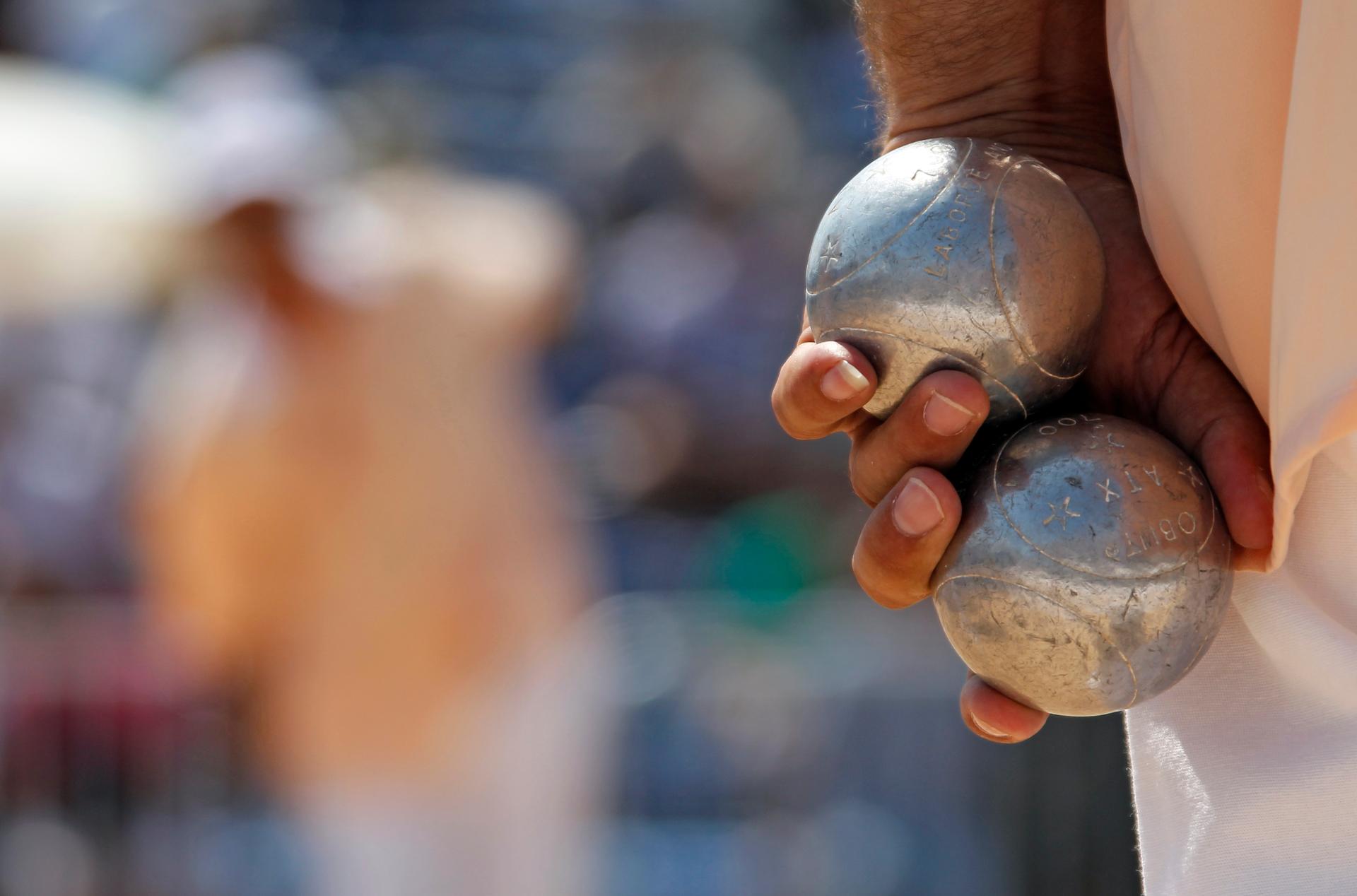A player holds petanque bowls during the semi-final of the "Mondial La Marseillaise de Petanque" in Marseille July 8, 2010.
As Paris makes a bid to host the 2024 Summer Olympics, pétanque fans are pushing to have the game included as an Olympic sport. Along with other “sports de boules” — Italian bocce and boule lyonnaise amongst them — Pétanque is clamoring for Olympic representation.
But how likely is it to succeed?
“I’m pretty skeptical,” says Alec Stone Sweet, a Yale Law professor and competitive pétanque player. Indeed, there seems to be more of a focus on cuts in the budget: “The Olympic committee has cut down on a number of sports — karate is no longer part of the Olympics — and it’s hard to understand why pétanque ought to somehow jump in front of the line.”
The sport is pretty straightforward. Sweet explains the rules in his article, Introduction to Pétanque: “players first draw a circle on the ground, then throw a small wooden ball — called a bouchon or cochonnet or but — out between 6 and 10 meters. Players take turns either pointing or shooting. Pointers try to place their boules as close as possible to the bouchon.”
Despite its reputation as a leisurely game — pétanque is often associated with pastis, a French spirit, and elderly grandfathers — Sweet says there’s more to it than meets the eye. “It is gruelling because of the heat, the pressure, the nature of the game is such that it demands extraordinary mental concentration and control over the body in difficult conditions.”
What’s more, when played competitively, he says that pétanque far surpasses its bocce counterpart: “Pétanque is a much more aggressive and almost macho game.” The players might be older than the average sportsman, but they’ll stop at nothing to win.
Despite its quintessentially French reputation, the sport is extremely popular in other parts of the world; Thailand and Madagascar, for example. “The present world champions for woman are Thai,” explains Prof. Sweet. “They are the best women’s team in the world, and the best men’s team in the world now is from Madagascar, so pétanque is actually a global game.”
But how did pétanque get all the way to Thailand? Through an unlikely source: the royal family. “In the 1950s, the sister of the king fell in love with the game, and decided to make a special brigade of the Thai army that would be dedicated to playing pétanque competitively under the Thai flag,” Sweet says.
Though the sport isn’t exclusively French, it will forever be associated with that most French of liquors: the anise-flavored pastis. But. Sweet is adamant: True competitors don’t start drinking until they’re done playing. “You drink after the tournament is over. After you’ve lost, you have good reason to drink; after you win, you have good reason to drink. But in between the games it’ll actually hurt your game very very badly.”
UPDATE: A previous version of this story incorrectly listed the distance of petanque as between 12 and 20 meters. It is actually between 6 and 10 meters.
Every day, reporters and producers at The World are hard at work bringing you human-centered news from across the globe. But we can’t do it without you. We need your support to ensure we can continue this work for another year.
Make a gift today, and you’ll help us unlock a matching gift of $67,000!
